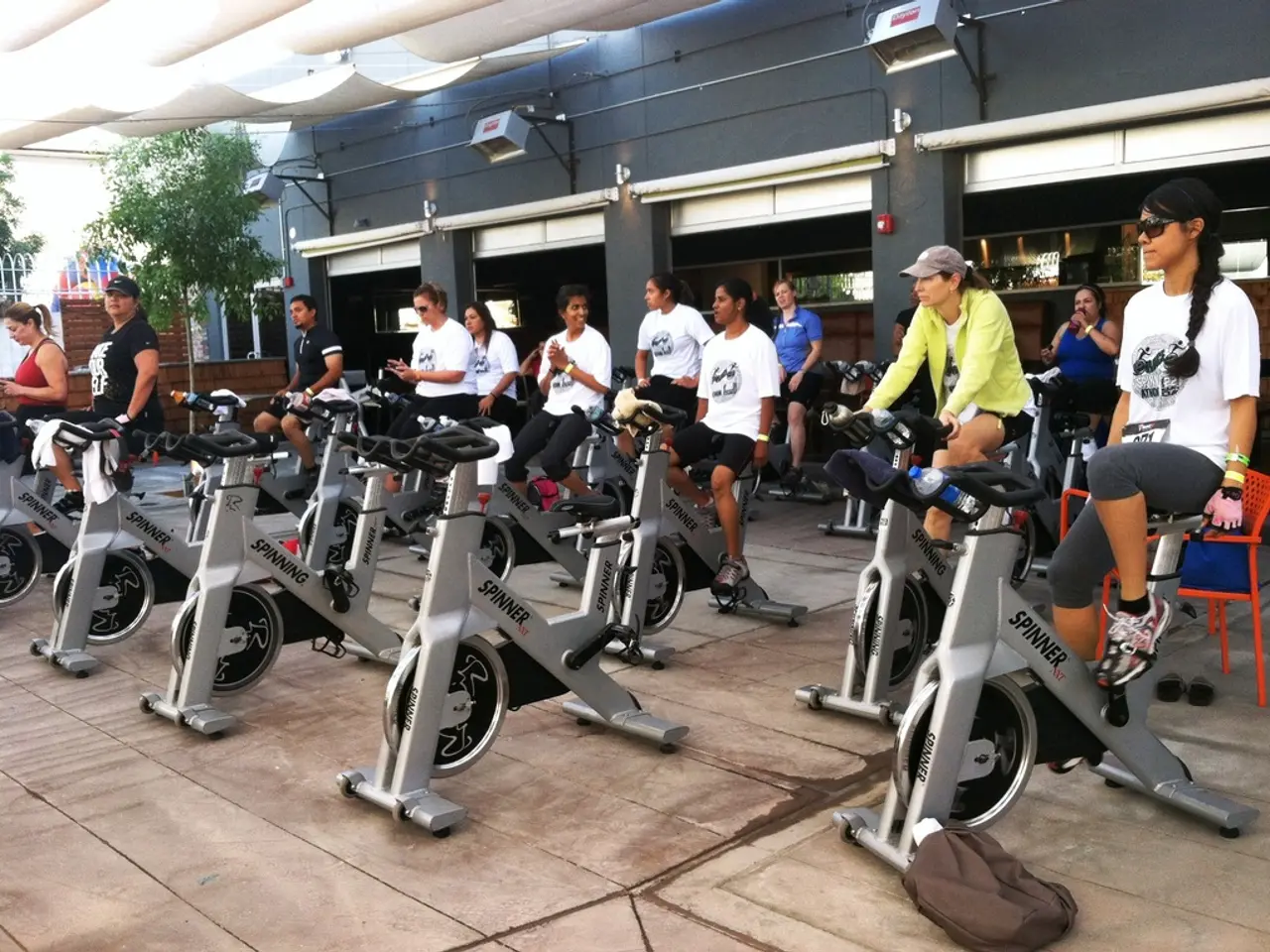Essential Role of Rest and Relaxation in Your Exercise Regimen
Fitness and Rest: The Unexpected Partners
In the realm of fitness, it's all about pushing limits and aiming for improvement, right? Wrong! While determination and drive are vital, there's another crucial aspect you shouldn't overlook - rest and recovery. Yes, that seemingly lazy time off is just as essential as pumping iron or running mile after mile.
The Magic of Rest and Recovery
Rest and recovery play a pivotal role in reaching peak performance and avoiding injuries. The reasons are many:
1. Muscle Growth and Repair
When you break a sweat, your muscles face stress and micro-tears. The magic happens during rest and recovery, as these muscles mend and revitalize themselves. It's this healing process that results in muscle growth and increased strength. If you don't take the time to rest, your muscles might never recuperate fully, leading to overuse injuries or decreased performance.
2. Injury Prevention
Overtraining and lack of rest can put you at increased risk of injuries. Continuous pushing without taking a break overstresses your muscles, tendons, and ligaments. This excessive strain can lead to nasty issues like stress fractures, tendonitis, or muscle strains. Incorporating rest days into your routine allows for your body to recoup and strengthen itself, reducing the odds of injuries.
3. Mental Health Matters
Physical exercise not only impacts your body, but it also significantly affects your mental wellbeing. During exercise, your brain releases endorphins, otherwise known as “feel-good” hormones. However, too much of a good thing can lead to fatigue, irritability, and depression. Rest and recovery days give your mind a much-needed break, balancing both physical and mental health.
Embracing Rest and Recovery
Now that you get why rest and recovery are important, here's how to incorporate them into your fitness journey:
1. Schedule Rest Days
Planning rest days in your weekly agenda is a no-brainer. Try for at least 1-2 days of downtime each week, focusing on self-care activities like stretching, foam rolling, or practicing mindfulness.
2. Listen to Your Body
Take cues from your body. If you feel excessively fatigued, sporting muscle soreness that doesn't vanish, or notice a dip in performance, your body might be telling you to slow down and rest. Adjust your training accordingly to ensure a complete recovery.
3. Mix Things Up
Variety is the spice of life, even in fitness. Incorporate different exercises to avoid overworking specific muscle groups and lower the risk of overuse injuries. Cross-training, which involves engaging in sports like swimming, cycling, or yoga, can provide a well-rounded workout and promote active recovery.
4. Sweet Dreams
Quality sleep is a non-negotiable aspect of recovery. Make sure to get 7-9 hours of uninterrupted shut-eye each night to allow your body to recharge and regenerate. Establish a bedtime routine that promotes relaxation, like steering clear of electronics before slumber and creating a serene sleep environment.
5. Fuel Up
Nutrition is key to recovery. Ensure you consume a diverse diet filled with fruits, veggies, lean proteins, and whole grains. Stay hydrated throughout the day, and remember, hydration plays a significant role in the recovery process.
Closing Thoughts
Rest and recovery are indispensable components of any fitness regimen. They empower your body to heal, strengthen, and prevent injuries. By incorporating rest days, listening to your body, mixing up your workouts, prioritizing sleep, and maintaining proper nutrition, you'll optimize your performance and overall wellbeing. Remember, achieving your fitness goals is about balance - pushing hard and taking time to rest.
- In the process of muscle growth and repair, it's the downtime that truly transforms the micro-tears caused during exercise into increased strength, ensuring peak performance.
- Neglecting rest and recovery can lead not only to physical injuries such as stress fractures and tendonitis, but also mental health issues like fatigue, irritability, and depression due to overexertion.
- Embracing mindfulness as part of self-care activities can further nurture both physical and mental wellbeing during rest days.
- Sleep, a scientifically proven form of rest, is vital for allowing the body to efficiently recharge and regenerate, impacting overall fitness and health-and-wellness.
- Proper nutrition plays an integral role in the recovery process, as a balanced diet filled with fruits, veggies, lean proteins, whole grains, and proper hydration supports optimal performance and mental health in fitness-and-exercise.







